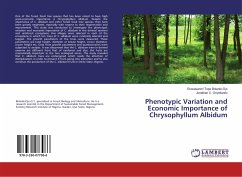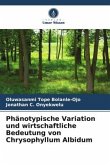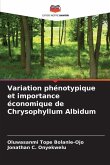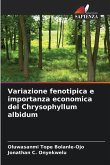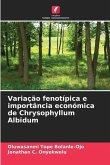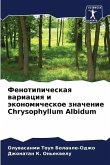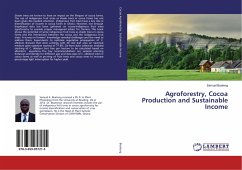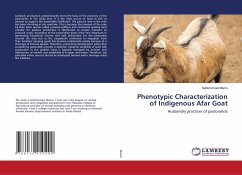One of the forest food tree species that has been noted to have high socio-economic importance is Chrysophyllum albidum. Despite the importance of C. albidum and other forest food tree species, they have been greatly neglected, especially with respect to their regeneration and improvement. This study was conducted to investigate the phenotypic variation and economic importance of C. albidum in the derived savanna and rainforest ecosystems. Five villages were selected in each of the ecosystems in which ten trees of C. albidum were randomly selected and tagged. The growth parameters of the trees were measured. These parameters are total height, diameter at breast height, crown diameter, crown height etc. Data from growth parameters and questionnaires were subjected to analysis. It was discovered that the C. albidum trees in derived savanna are different from that of rainforest and also, the fruits are economically important in the two ecological zones. The study revealed that C. albidum trees are endangered which needs the attention of domestication in order to prevent it from going into extinction and to also continue the production of the C. albidum fruits in Ondo State, Nigeria.

